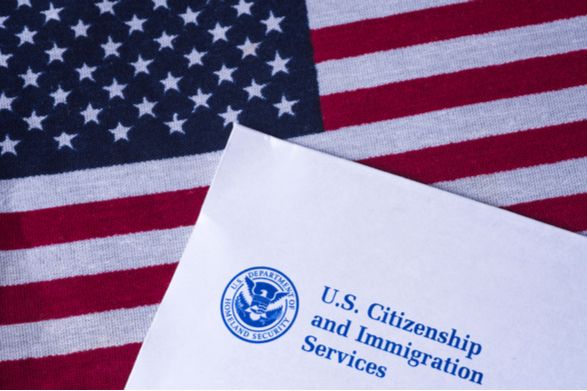Quote of the Day:
Will American citizenship still mean something in the future? If Americans can be expelled from their own country, no. If noncitizens have as much right to live here as citizens, no. If we effectively extend the rights of citizenship to everyone in the world, how can we still be a country?
–Geoffrey M. Vaughan at City Journal
Geoffrey M. Vaughan, begins his exploration of “Citizenship and American Identity” at City Journal by quoting one of the most powerful sentences in the ancient world: Civis Romanus sum. “I am a Roman citizen.” Roman citizenship carried meaning and certain protections throughout the world.
What does the call for open borders, widespread among Democrats, mean for our citizenship?
Vaughan acknowledges that more than a billion people on the planet could benefit by moving to a small number of countries, those in Western Europe and North America. Our own southern border is a testament to this. They want to escape violent and economically disadvantaged places.
We can be sympathetic with people seeking entry, even when doing it illegally, and yet feel that the consequences of an open border will be to change the meaning of citizenship. If you read only one thing today, let it be Geoffrey Vaughan’s meditation on the meaning of U.S. citizenship.
He writes:
Just as government policies can undermine currencies, so, too, can they degrade citizenship. Cancelling debt is one way to devalue a currency; printing too much money is another. The Democratic presidential hopefuls seem set on similar policies for American citizenship. Most have, in one form or another, suggested decriminalizing illegal entry to the United States. “That is tantamount to declaring publicly that we have open borders,” said Jeh Johnson, former head of Homeland Security under Barack Obama. Most of the Democratic presidential candidates have also endorsed providing illegal immigrants medical insurance, even as millions of American citizens lack coverage. With these measures in place, what would remain of American citizenship?
No one knows how sincerely the candidates hold these positions (or how long they will hold them). We do know that they took these positions in response to the migrant crisis at the Mexican border. The deaths of Óscar Martínez and his daughter, Valeria, as they fled El Salvador and attempted entry into the United States only added to anxiety about the crisis.
In response to the deaths, El Salvador’s recently elected president, Nayib Bukele, made one of the most courageous and honest statements of any politician in recent memory. In an interview with the BBC, he said of the Martínez family: “We can blame any other country but what about our blame? What country did they flee? Did they flee the United States? They fled El Salvador, they fled our country. It is our fault.”
It’s refreshing to see a leader confront the failures of his nation. Bukele’s frankness seems inspired by a practical understanding of citizenship. By contrast, chants of “send her back,” directed at Minnesota congresswoman Ilhan Omar, are the kind of repudiation of citizenship that even Nero might not have gotten away with. President Trump was right to repudiate those chants. They are a denial of the protections of American citizenship.
Will American citizenship still mean something in the future? If Americans can be expelled from their own country, no. If noncitizens have as much right to live here as citizens, no. If we effectively extend the rights of citizenship to everyone in the world, how can we still be a country? The question of citizenship could become the most pressing political question of the twenty-first century. The danger, as we’re seeing, is that we will answer the question without thinking it through.
Read the entire article.


